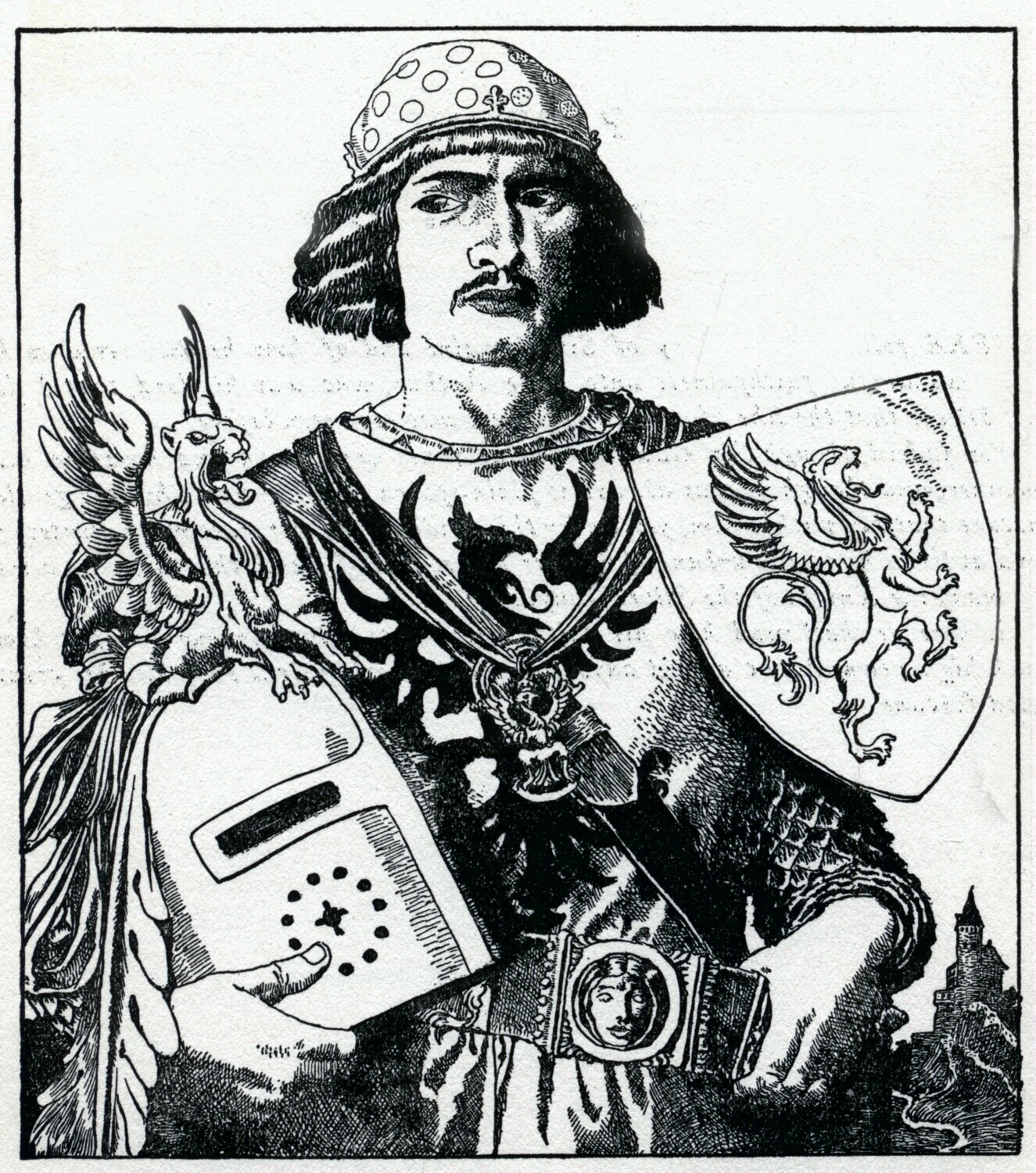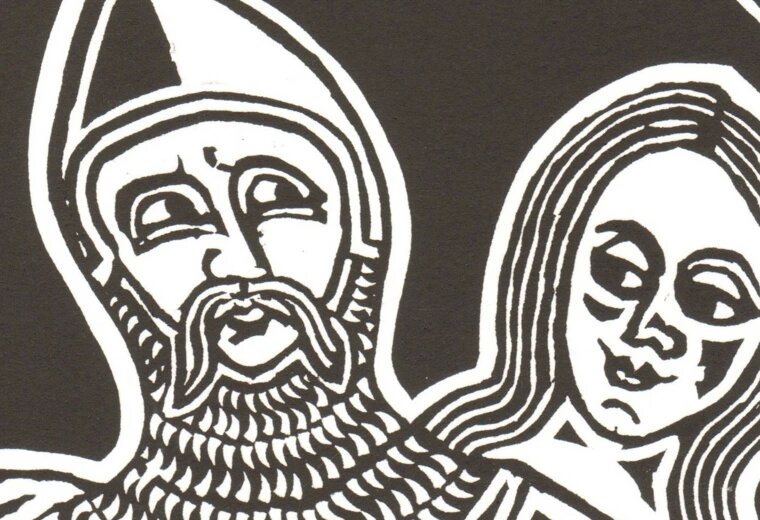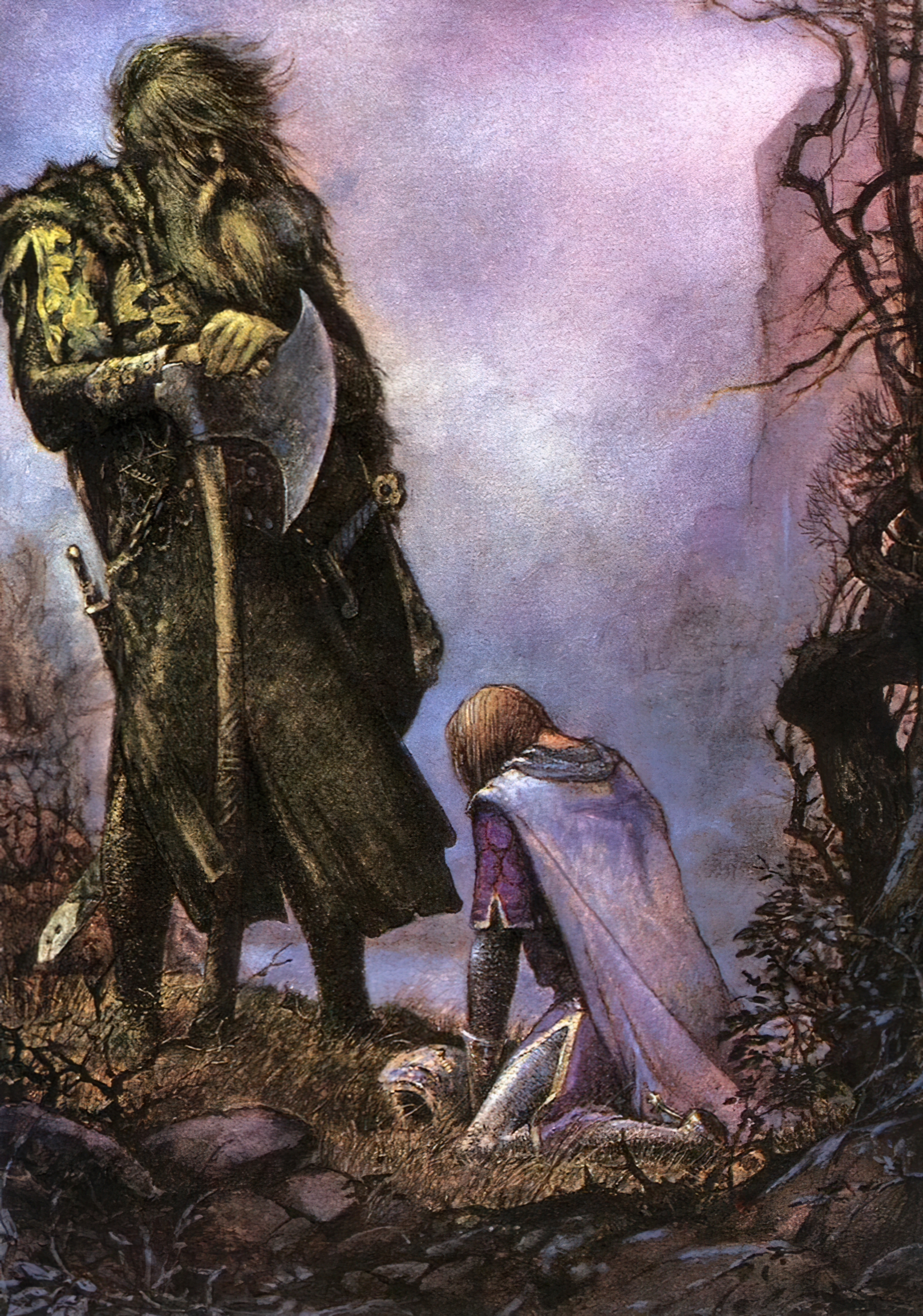
Sir Gawain and the Green Knight (book review)
by Brentley
16.07.2022
Story Overview:

But the hue of his every feature stunned them: as could be seen, not only was this creature colossal, he was bright green.
A mysterious green knight rides into Camelot where king Arthur and his knights of the round table are all seated. He gives a challenge to the men to prove their worth, and Gawain accepts the challenge. Gawain will give a swing at the green knight's neck, but next year, Gawain will find the green knight at his castle- where he will receive a swing at his neck himself on New Years' day from the green knight. With one swing of his blade, he cuts the knight’s head off, but the green knight, to everyone’s horror and shock- picks it up and rides out on his horse. The people of the castle are terribly distraught, as no man has ever survived the green knight’s challenge. Countless men have apparently been cut down by him. Everyone is fearful for Gawain’s life, but sir Gawain approaches his fate with confidence and a sense of duty.

Gawain put on good cheer. ‚Why should I hesitate?’ he said. ‚Kind or severe, we must engage our fate.’
Gawain makes his journey to find the green knight's castle. He comes upon a castle that is under a prince- who welcomes Gawain to stay as long as he likes. The prince knows where the green knight's castle is- and explains to Gawain that it is only an hour-long horse ride away. He assures him when New Years’ day arrives- he will make it with everything in order. So sir Gawain stays with him until then. There is much celebration during the knight’s stay, and there are plenty of games and chatting with ladies that Gawain takes part in as the time passes. While the prince is going early in the morning for a hunt, his wife comes into Gawain’s room as the sun is rising and sits on his bed. She attempts to take Gawain as her husband, but he kindly rejects her advances as it would be completely dishonorable behavior towards his gracious host who so kindly has provided for him everything he could possibly need and more. Gawain is still a knight, though, and so is forced by his chivalrous duties to be under the command of the fair lady. She leans in and kisses him before taking her leave. This all happens on multiple occasions during the story, with the last time being the most important. The prince's wife gives as a gift to Gawain a green girdle that is apparently known for protecting one from being slain by another man. He first resists it, among other gifts, but he quickly accepts the girdle once he hears of its possible qualities.

For with this green lace girt about his waist, while he keeps it closely wound around him he cannot be cut down by any man nor slain by any cleverness or cunning under the whole Heavens.
Finally, the day has come. Sir Gawain rides to the green knight’s castle. He hears the sound of grinding and imagines someone is sharpening a blade. The green knight and Gawain meet, and they talk shortly before Gawain demands the knight to deliver him his fate. The knight swings down at him. Gawain flinches and makes the knight miss. This is to the green knight’s surprise and he imagines that Gawain would be more honorable than this. Gawain holds still. On the second time, he doesn't flinch and the knight's axe only scratches his neck as it passes.

He stands ready to swing, face puckered. Imagine how Gawain is suffering for there is no hope now.
The green knight then shows himself to be the prince Gawain stayed with. He knows of Gawain’s interactions with his wife and mentions it to him. He also recognizes the girdle that prince’s wife gave to Gawain as she wove it for the prince- it was his. Gawain was swept with guilt upon learning the prince had knowledge of everything he did behind his back, but the prince was quick to ensure Gawain that everything is equal and he need not be ashamed of himself. He had after all faced his fate. The prince explained that he had a spell cast on him by Morgan le Fay, a witch who learned the arts of Merlin. She transformed him into a ghoulish man who was able to have his head cut from him without dying. After the explaining was finished, the prince spared no praise upon the courageous knight as he held Gawain before him and kissed him- commending him to Christ before they parted ways. Gawain decides to always wear the girdle the prince’s wife gifted him as a remorseful reminder of when his honor was not true. When he returns to Camelot, after much celebration and many shouts of joy over Gawain’s return, King Arthur and the whole court agreed that all lords and ladies of the round table should wear a green girdle similar to Gawain’s in order to keep him company.
Important points:
* The poem’s main story is a Christian success story. It reinforces Christian lessons, yet surprisingly does not have a very negative view of paganism. Many speculate that the green knight is an embodiment of or symbolizes paganism or nature. Just as Gawain could not avoid the green knight’s challenge, one can not avoid nature. Paganism also has a very tight bond with natural order, so it is very reasonable to have this view. The implications of this are left up to the reader to decide. Perhaps this is a victory over paganism. Perhaps this is an acknowledgement of the relationship between paganism and Christianity- the unavoidable consequences of Christianity being spread through and by Europeans- the pagan influence on the new religion. Such consequences appear to be strongest in Catholicism. You must have good rhetoric when you want someone to follow you- and in order to make northerners pray to Jesus, you must present him as a warrior.
* The Christian morality is on full display here through the advent of “shame.” It is not nearly as total and hollowing as more modern works portray it- yes, Gawain suffers his shame, but it is quickly over with. Rather than it being something to slow him down, he feels great shame at how he was not more honorable to the prince. There as well is not discussion of sin in this story. This story seems to remind us of a time when something could be bad or good without being a “sin” – such human affairs being separate from the domain of God. But there is also a strange occurrence in this poem concerning religion- the apparent magic qualities of the girdle and the magic practiced by Merlin or Morgan le Fay. This magic appears to not be in contradiction to the Christianity of the time. These practitioners of magic seem to be in great standing with honorable men. It is curious, when concerning the fact that these concepts of magic appear to be of an earlier Indo-European origin- a pagan origin.
* Sir Gawain is an honorable knight and is chivalrous. Above all, he is fair and he is willing to accept his fate- no matter if it is kind or severe. “No one can hide, without disaster, a harmful deed.” Sir Gawain learned that the truth always comes out in the end. But as well, the reader learns that it is important to bear the burdens of your friends. In this case, everyone in Arthur’s court now wears the green girdle. Everyone can also look to the girdle as a reminder to keep their honor true.
The translation of my copy was made by Keith Harrison and published by Oxford University Press